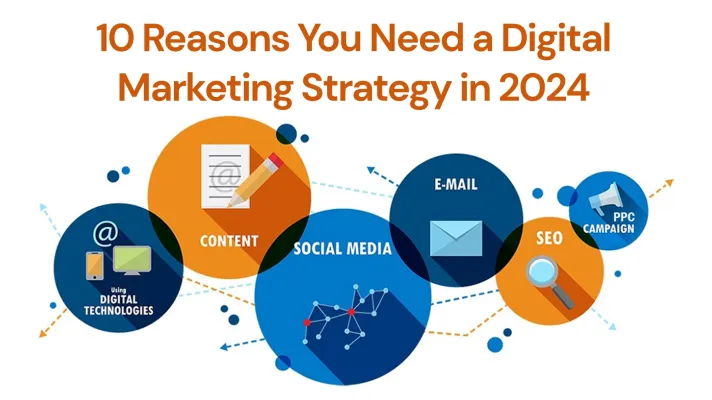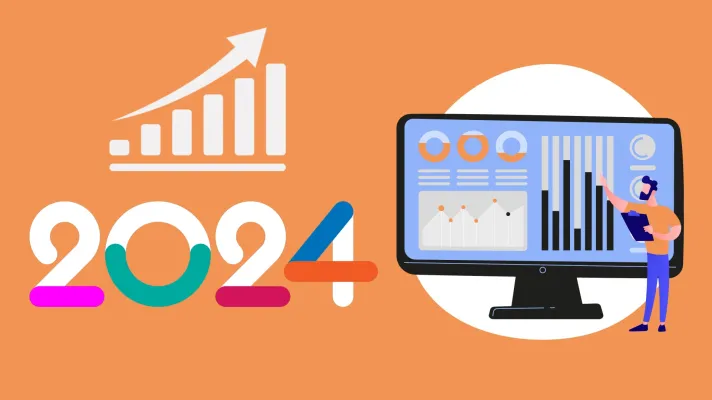
Unlock the power of SEO in 2023 with our comprehensive glossary. Learn key terms and stay ahead in digital marketing. Explore the essential SEO vocabulary now!
Introduction
The world of Search Engine Optimization (SEO) is changing fast and can be exciting or a bit overwhelming for both new and experienced digital marketers. It’s not just that the rules are always changing, but there’s also a lot of specific language to understand. As we go into 2023, it’s really important for marketers to learn the key terms in SEO. That’s why we made this SEO glossary – to help you understand these terms.
Knowing these terms isn’t just for books; they’re like building blocks that can help you create successful SEO strategies, increase how much people see your website, and bring in more visitors. Whether you’re a business owner, a digital marketer, a content writer, or just someone curious about the digital world, this SEO Glossary with over 100 important terms is your guide for the year. Let’s explore this journey together, making complicated words easy to understand, one term at a time.
Defining SEO and its Importance in 2023
SEO, which stands for Search Engine Optimization, is a way of marketing online that helps make a website more visible when people search on search engines like Google, Bing, and Yahoo. To do this, different tricks are used, like picking the right words and making the website easy to use. These tricks aim to make the website show up higher in the search results, bringing more free visitors.
In 2023, SEO is super important. With the internet growing a lot, every business, big or small, wants to be seen online. Because so many businesses are trying to be seen, it’s harder to stand out without good SEO. Also, SEO helps make the website better for people to use, which makes them happy.This builds trust and makes people like the website more. So, SEO isn’t just about getting more visitors; it’s about getting good visitors who are likely to become customers. If a business ignores SEO, it can slow down its growth online. That’s why it’s really important for companies to use SEO in their online marketing.
SEO Term 1 – The Basics
Search Engine Optimization, commonly known as SEO, is like making your website more visible on search engines. When you do it well, you can get more people to visit your site without paying for it. The basics of SEO mean you need to understand how search engines work and make your website appealing to them.
There are two main parts to SEO:
on-page and off-page. On-page is about making your website’s content and design better so that it shows up more in searches. This includes using the right words, making your site load fast, and making it easy to use on phones.
Off-page is about making your website more popular and respected. This involves things like getting other websites to link to yours, using social media, and writing articles for other sites. All these things help your website get noticed more and show up higher in search results.
SEO Term 11 – 20: Beyond the Basics
Understanding more advanced aspects of Search Engine Optimization (SEO) is important as we go beyond the basics. Here are some SEO terms (11-20) that will give you a better idea of how SEO works.
Bounce Rate:
This is the percentage of people who leave your website after only looking at one page. A higher bounce rate means people aren’t engaging much with your site.
Domain Authority:
A score from 1 to 100 given by search engines to show how trustworthy and relevant a website is.
Backlinks:
These are links from one webpage to another website. They help SEO by making a site more trustworthy.
SERP:
It stands for Search Engine Results Page, which is the page you see after searching for something online.
Keyword Density:
This is how often a specific word appears on a webpage compared to the total number of words.
Meta Description:
A short description that gives an idea of what a page is about.
Robots.txt:
A text file used by website owners to tell web robots what they can and can’t do on the site.
Sitemap:
A list of all the URLs on a website, making it easier to navigate.
Anchor Text:
The clickable text in a hyperlink.
301 Redirect:
A permanent redirection from one URL to another. It’s used when a page has moved or been deleted.
SEO Term 21 – 30: Explaining Google Algorithms
In the big world of SEO, it’s crucial to understand Google’s always-changing algorithms. These are smart systems that fetch data from Google’s search index and quickly show the best results for a search. Even though they might seem complicated, they’re not a mystery. Terms 21 to 30 are here to explain these algorithms, turning them into useful tools for any marketer.
Starting with Panda, which looks for low-quality content, and Penguin, which punishes websites for overdoing things or having sketchy links. Mobilegeddon cares about websites being mobile-friendly, Pigeon makes local searches better, Hummingbird focuses on understanding the meaning of words, and RankBrain uses artificial intelligence to understand complex searches.
Fred targets websites with too many ads, Possum deals with location-related issues, and BERT helps Google understand language better. Lastly, MayDay is all about long-tail search queries. Understanding these algorithms can make a big difference – it’s like the key to getting high rankings in search results or being invisible online.
SEO Term 31 – 40: Search Engine In-Depth
SEO Term 31 talks about something called the ‘Search Engine Results Page’ (SERP). It’s the page you see after you type something in a search engine. It shows a list of web pages with titles, links, and short descriptions that match what you searched for.
Going on, SEO Term 32 explains ‘Organic Search Results.’ These are listings based on how well they match your search, not ones that are paid for. Terms like ‘Keyword Stuffing’ (which is bad for SEO), ‘Backlinks’ (links that help your page rank higher), ‘Meta Tags’ (info about a webpage), ‘Anchor Texts’ (clickable text in a link), and ‘Bounce Rate’ (how many leave after one page) are explained from Terms 33 to 37.From Terms 38 to 40, we focus on more specific SEO things. ‘Black Hat SEO’ is doing things that break search engine rules to rank higher. ‘White Hat SEO’ is doing things the right way to improve rankings while being honest. ‘Grey Hat SEO’ is in the middle, not fully okay but not completely wrong. To use SEO well, it’s important to understand and use these terms to make your website better, so more people see it and maybe become customers.
SEO Term 41 – 50: User Experience and SEO
Making sure people have a good experience on your website (User Experience or UX) is super important for SEO. From Term 41 to 50, we focus on how UX connects with SEO.UX isn’t just about making your site easy to use; it also affects how well your site shows up in search results. Google even has a special algorithm called ‘Page Experience’ that highlights the importance of UX in SEO.
Things like how fast your pages load, if your site works well on phones, how easy it is to find things, and having good content all make for a great user experience. And guess what? These things also help your SEO. If people find your site hard to use or the content isn’t helpful, they might leave quickly, which can hurt how well your site ranks.So, a good user experience not only makes users happy but also makes search engines like your site more, directly helping your SEO. To sum it up, Terms 41 to 50 stress how crucial a fantastic user experience is for making your website perform well on search engines.
SEO Term 51 – 60: Content Marketing & SEO
SEO Terms 51 to 60 talk about how Content Marketing and SEO come together. Content Marketing is a smart way of marketing that focuses on creating, sharing, and promoting valuable and relevant content to attract a specific audience. The goal is to get people to take some action. SEO, on the other hand, is about making your website show up higher in search results.
These two things go hand in hand because good content with the right keywords helps your site show up better in searches. And, using SEO tactics ensures your content is easy to find and appeals to your intended audience. So, it’s important to find a good balance between Content Marketing and SEO in your digital marketing plan.
Using SEO in your content marketing doesn’t mean cramming it with tons of keywords. Instead, it’s about making top-notch, unique content that your audience likes and shares. In the end, making content that people love to share boosts your online presence, giving your brand more credibility, links, and visitors.
SEO Term 61 – 70: Technical SEO Explained
SEO Terms 61 to 70 deal with the technical side of SEO. If you find technical terms confusing, that’s okay – they can be tricky. But understanding them is crucial to making sure your website is set up for search engines and easy for visitors to use. Even though technical jargon might seem tough at first, once you figure it out, you’ll have the tools you need to boost your website’s visibility and traffic.
Technical SEO is about optimizing your website so search engines can easily understand it during the crawling and indexing phase. This involves things like making sure your site loads quickly, works well on mobile devices, uses XML sitemaps, has SSL certificates, uses canonical tags, has a robots.txt file, and uses structured data.
Getting a grip on these concepts can improve your website’s overall health and performance in search results, leading to more organic traffic. So, stick with it as we break down SEO Terms 61 to 70, explaining the role and importance of each term in your SEO strategy.
SEO Term 71 – 80: Local SEO: Attracting Local Customers
Local SEO is super important for businesses looking to attract customers in a specific area. It’s a great way for smaller businesses, like small shops or medium-sized companies, to compete with bigger ones by focusing on people nearby.
With local SEO, businesses can benefit from their local communities while still having an online presence. This usually involves using keywords related to the location, creating listings for local businesses, making sure your Google My Business profile is well-optimized, and getting positive reviews from customers. When done right, local SEO can really boost a business’s visibility on search engines, especially when people are looking for services or products in that specific local area. This means more people visiting the business, and hopefully, more sales!
SEO Term 81 – 90: Global SEO: Reaching the International Audience
When we talk about SEO terms, there’s a really important one that sometimes gets overlooked – Global SEO. Global SEO is all about making your website show up at the top of search results, not just in your local area, but all around the world. It’s the game plan businesses need if they want to connect with a bigger and more diverse audience globally.
Global SEO means thinking about different search engines people use in various parts of the world. It’s also about adapting and customizing content for different cultures and languages, dealing with all the complexities that come with the digital world on an international scale.
Basically, it’s about understanding the global market and using SEO strategies to make sure people from all over the world can find your business. With the right Global SEO moves, a business can get more attention, attract a wider audience, and, in the end, grow on a global level.
Conclusion
In conclusion, knowing these important SEO terms is like having a guide for success in the digital world. Whether you’re just starting or you’re already experienced, understanding these terms helps you create effective strategies, increase your website’s visibility, and bring in organic traffic.
From the basics to more advanced ideas, this SEO glossary is your handy guide for 2023, making complicated terms easy to understand and giving you the tools to navigate the always-changing world of Search Engine Optimization. So, jump in, explore, and use these tips to boost your online presence. Happy optimizing!






